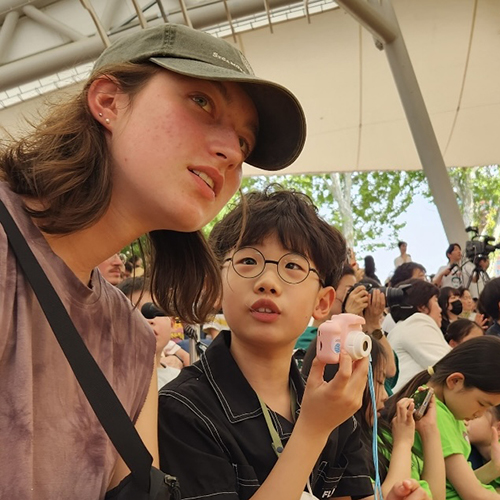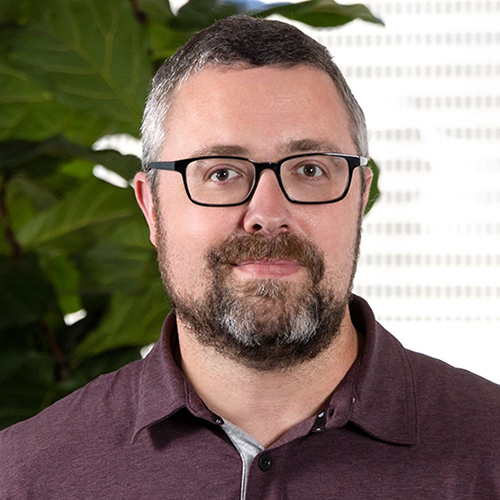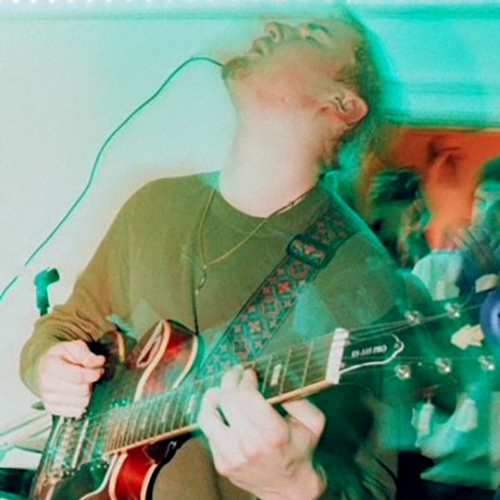As did Hayuth’s interest in a leadership role in academia. Once adamantly opposed to administrative duties, he is now president of the University of Haifa and enjoying the role. He is also an adjunct professor at the University of Washington, where he earned his Ph.D. in geography.
Hayuth traces his connection to the UW back to his days as a graduate student at the University of Jerusalem. UW Geography Professor Edward Ullman was there as a visiting professor, and Hayuth became his assistant. Ullman convinced Hayuth to come to the UW for his Ph.D.
Hayuth was a world traveler by the time he came to the UW—he’d already served as a regional planner in a United Nations development team in northern Thailand—but he was immediately taken with the Pacific Northwest. “It was great from the beginning,” he recalls. “I studied geography, economics, and civil engineering. I enjoyed the courses and the setting. My daughter was born during my time in Seattle, so I have emotional ties to the city.”
Some of Hayuth’s mentors from that period have remained lifelong friends. Edward Ullman died suddenly during Hayuth’s first year at the UW, but Doug Fleming, now professor emeritus of geography, took over as Hayuth’s adviser and has remained a close friend and colleague. “We have been in close touch for 27 years now,” says Hayuth.
Hayuth went on to teach briefly at the University of Rhode Island and then returned to the University of Haifa as a lecturer (and later a full professor). He returned to Seattle in 1990, during a two-year sabbatical, to serve as a consultant to the Port of Seattle.
“I was exploring opportunities for the Port of Seattle and Port of Tacoma to work more cooperatively,” explains Hayuth. “It is a complicated situation because they are in two different counties with different leadership. It was an intriguing study.”
While in Seattle, Hayuth also made time to teach a Geography of Transportation course at his alma mater, the University of Washington. He’s been teaching the course annually ever since. “I used to come for two months, to teach all of summer quarter,” Hayuth says. “Now one month is all I can squeeze out of my schedule. But I very much enjoy teaching in the department.”
One thing Hayuth particularly enjoys is the relaxed atmosphere on the UW campus during summer quarter—a much-needed break from his stressful job as president of the University of Haifa. He took on the presidency, after much arm-twisting, in 1995.
“It was never in my plans to be in administration,” he says. Hayuth first agreed to serve as vice president for administration for two years, as a favor to the president, who was a friend. But then the president left and Hayuth found himself as acting president. “I was unwilling to take the job,” he recalls. “I was involved in many things in transportation in the European Science Foundation and I thought, ‘Why should I get into administration when I’m happy with what I’m doing?’ But after repeatedly saying ‘no’ for a year and a half, I finally accepted the position. I could not believe I got myself into it.”
By the end of his first four-year term, however, Hayuth had warmed to the challenges of the job—especially as he saw his efforts pay off. “When I began as president, it was a university of 7,000 students,” says Hayuth. “Now there are more than 14,000 students, with an additional 7,000 through diploma and continuing education courses.” Construction has kept pace, doubling the built-up space and changing the face of the University’s Mt. Carmel campus during Hayuth’s presidency.
Hayuth was re-elected for another four years and recently agreed to stay on for two after that. His early unwillingness to serve is obviously a thing of the past as he speaks proudly of the University’s continuing development under his stewardship. But when his term ends he’s ready to get back to his transportation work. He is grateful for his month in Seattle, when he can immerse himself in his own discipline, freed from administrative duties.
Technology is making even that short annual hiatus difficult. “With email, faxes, and telephones, I cannot really get away from everything,” Hayuth says with a shrug.
Especially this summer. When 7 students were killed and 80 wounded during a terrorist attack at the Hebrew University in Jerusalem on July 31, Hayuth spent many hours on the telephone with colleagues and security personnel to ensure the safety of his campus in Haifa. But as a sixth generation Israeli who has served as a paratrooper in the army, he is no stranger to the uncertainties of life in Israel.
“It is a different world,” he says. “You cannot really get used to terrorism. However, life goes on. People do not restrain themselves from going to restaurants; instead we have guards in the front of restaurants. It is unfortunately part of our life.”
Haifa, in the northern part of Israel, has been less plagued by recent terrorist attacks than Jerusalem, but it has had its share. “Haifa is a mixed city, with both Jews and Arabs,” says Hayuth. “The relationship between them has been good, and the city had been mostly immune to terrorist activities. But last year, a bus and a restaurant were blown up near the university. It changed the whole atmosphere.”
The University of Haifa is also very diverse—18 percent of the students are Arab-Israelis, with many immigrants from Russia and Ethiopia as well. Hayuth hopes that this diversity can play a role in bringing about peace.
“It is our policy at the University to try to take advantage of this mix of students,” he says. “We are doing a lot to advance the co-existence of different groups. If we succeed, there is hope for our country and our region. It is not easy. If is often like walking a tightrope.
“To live in Israel, you have to be chronically optimistic,” adds Hayuth. “We learn from the short 50- to 60-year history of Israel that this is a cycle. The violence cannot go on forever. I really wish for Israel—and our neighbors—that we can reach peace before too long.”
More Stories

Finding Family in Korea Through Language & Plants
Through her love of languages and plants — and some serendipity — UW junior Katie Ruesink connected with a Korean family while studying in Seoul.

Working Toward Responsible AI
Artificial intelligence (AI) is an essential tool at Indeed, a global job-matching and hiring platform. Trey Causey (2009) works to ensure that the company's AI promotes equity and fairness.

Celebrating Contemporary Indigenous Music
Markus Teuton, a musician and citizen of Cherokee Nation, explores contemporary Indigenous music through his academic work and as host of “Indigenous Jazz,” a radio show.